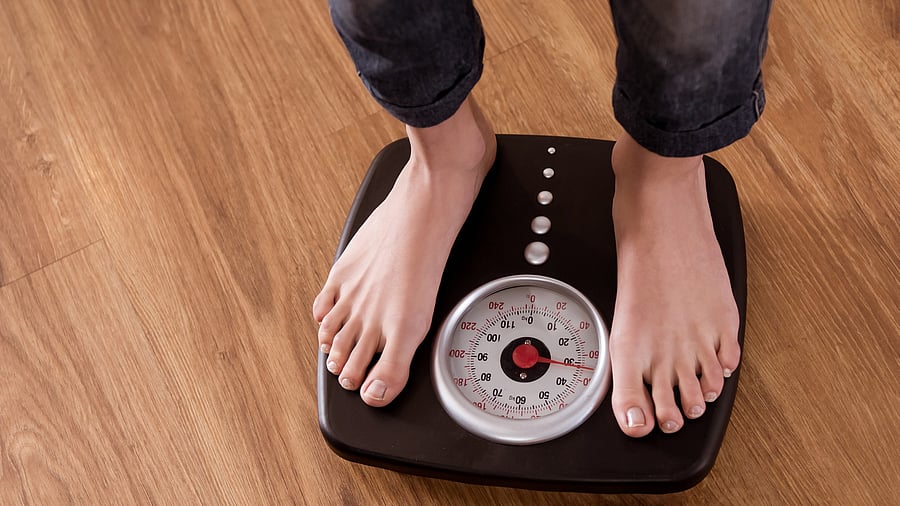
Representative image of a weighing machine.
Credit: iStock Photo
New Delhi: Fat stored in muscles can damage blood vessels and increase risk of hospitalisation or death due to heart disease, regardless of body mass index, according to a new study.
Researchers, led by those at Brigham and Women's Hospital, US, found that every one per cent increase in muscle fat was associated with an increase of two per cent in risk of coronary microvascular dysfunction -- when small blood vessels of heart malfunction -- and that of seven per cent for serious heart disease, irrespective of known risk factors.
The findings, published in the European Heart Journal, added evidence that existing measures, such as body mass index or waist circumference, are not adequate to evaluate the risk of heart disease accurately for all people.
"Obesity is now one of the biggest global threats to cardiovascular health, yet body mass index -- our main metric for defining obesity and thresholds for intervention -- remains a controversial and flawed marker of cardiovascular prognosis. This is especially true in women, where high body mass index may reflect more 'benign' types of fat," lead researcher Viviany Taqueti, a director at Brigham and Women's Hospital, said.
She explained that compared to subcutaneous fat (stored beneath the skin), fat stored in muscles can contribute to inflammation and altered glucose metabolism, potentially leading to insulin resistance and metabolic syndrome.
These "chronic insults" can then damage blood vessels, including those supplying the heart, the researcher said.
"Intermuscular fat (hidden inside muscles) can be found in most muscles in the body, but the amount of fat can vary widely between different people," Taqueti said.
However, it is not yet known how the risk of heart disease could be lowered in people having fatty muscles, she said.
For the study, nearly 670 people with no evidence of obstructive coronary artery disease were examined. They were being evaluated at the hospital for chest pain and shortness of breath. Most were women, and about half of the study group were non-white.
The researchers calculated fat stored in muscles through the ratio of intermuscular fat to total muscle plus fat, and termed it 'fatty muscle fraction'.
Positron emission tomography (PET) and CT scans were taken to assess each individual's body composition, measuring the amounts and location of fat and muscle in a section of torso, and see how well their heart was functioning. The patients were followed up for about six years.
"Increased intermuscular fat is associated with (coronary microvascular dysfunction) and adverse cardiovascular outcomes independently of BMI and conventional risk factors," the authors wrote.
"What we don't know yet is how we can lower the risk for people with fatty muscles. For example, we don't know how treatments such as new weight-loss therapies affect fat in the muscles relative to fat elsewhere in the body, lean tissue, and ultimately the heart," Taqueti said.